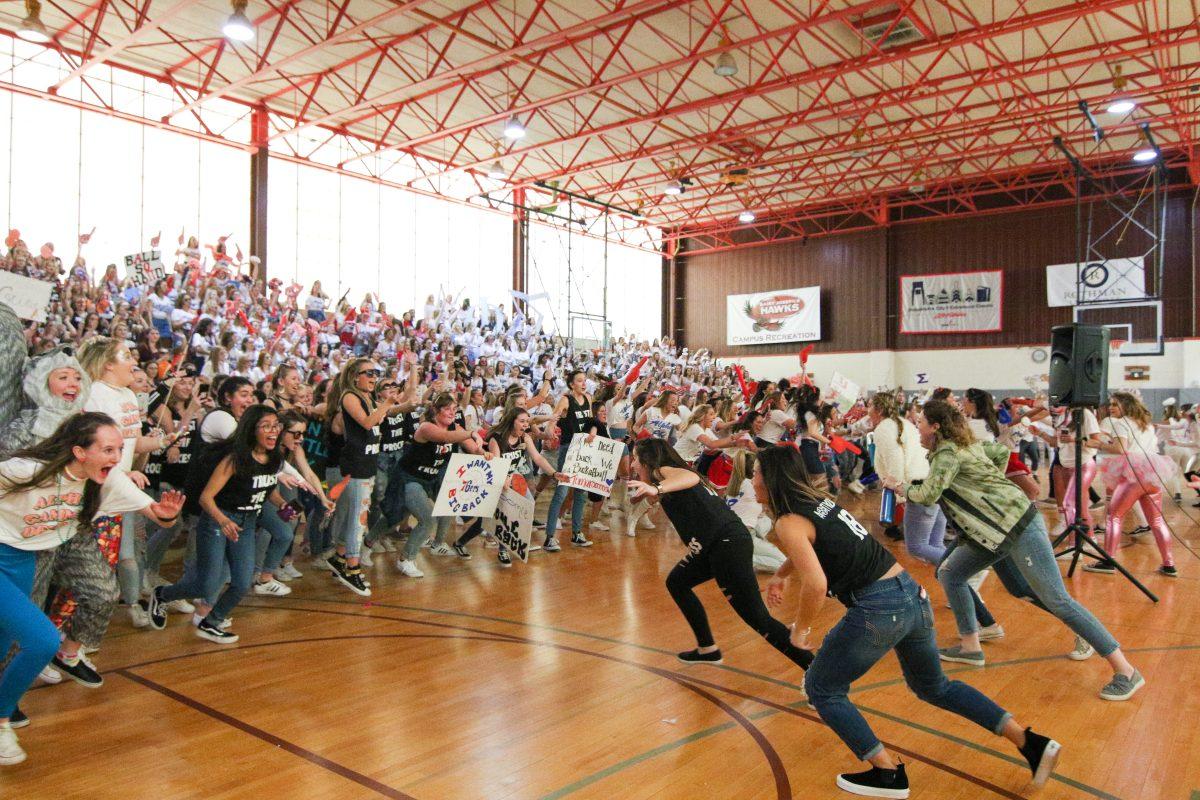Improvements made to fraternity recruitment
St. Joe’s Interfraternity Council (IFC), along with the three fraternities on campus, Lambda Chi Alpha, Sigma Phi Epsilon and Sigma Pi, are implementing strategies in their recruitment process to combat negative stories of hazing and excessive drinking currently in the national spotlight.
One of the most prominent stories gaining news coverage involved Timothy Piazza, a Penn State sophomore, who died Feb. 4, 2017 as a result of a hazing ritual at Penn State’s Beta Theta Pi chapter. Since then, all serious charges against fraternity brothers, including involuntary manslaughter and reckless endangerment, have been dismissed.
A new task for the leadership in Greek Life at St. Joe’s is to ensure that potential pledges or students with interest in joining a fraternity understand that similar incidents will not be happening in their communities.
“We need to shut down these ideas before they get their foot in the door,” said Bailey Ramirez ’20, president of Lambda Chi Alpha.
The Greek Council, in charge of programming and funding within Greek Life, holds a formal recruitment meeting in the beginning of both the fall and spring semesters. These events give students the opportunity to learn more about the fraternities, to meet current members and to figure out if a particular fraternity is the right fit for them.
Nicole Morse is entering her first year as the director of recruitment for the IFC. She is in charge of overseeing each formal recruitment event, like the one held by the Greek Council each semester, as well as continuously ensuring that fraternities are following community standards throughout the year. Every event or presentation given by one of the fraternities is approved by her first.
Although Morse said the IFC panel hasn’t kept track of exact numbers of men attending recruitment meetings in past years, she acknowledged a noticeable dip. At the latest event for the fall on Sept. 15-16, only 37 students signed up for recruitment.
“It’s definitely a challenge for us,” Ramirez said. “I know we missed out on some kids because they were nervous about what being in a fraternity entails and that bothers me. The biggest thing for us is educating people on what it’s actually about, what actually goes into it. To make sure they know that whatever these stigmas are about fraternities, it’s not going on here.”
Dominick Oliveri ’20, a member of Lambda Chi Alpha, said the rumors and stories about fraternities initially concerned him when he was considering joining, but he ultimately felt excited about becoming a part of the organization after recruitment.
“I wouldn’t say it dissuaded me, but it was definitely something to be mindful about,” Oliveri said. “I’m a huge advocate for the small-school feel when it comes to fraternity life, and St. Joe’s really makes you feel comfortable and confident when going through the new-member process.”
Morse said she believes that St. Joe’s Greek organizations can be exemplary in shifting public perception of fraternity life.
“We’re given the chance to stand up and be a positive voice,” Morse said. “We have this platform and we have this spotlight on us and we will make sure that we are using our voices to say that it’s not acceptable here and hopefully change the conversation.”
As the IFC’s vice president of recruitment, Michael Zocco ’20 works directly under Morse and communicates with the three charters regularly, particularly about efforts to boost recruitment numbers.
“I think the first step in improving numbers for recruitment is just being completely transparent as a council within the community,” Zocco said.
The IFC has also designed some strategies to maintain an open dialogue with those who decide to join a fraternity after recruitment. They now require each new member to take part in an alcohol and wellness education program. During that program, members will share their previous experiences with drinking and learn about the importance of sobriety or moderation.
Morse said this course will help the members not only to better understand what is responsible behavior within the organizations, but also to help them properly identify what they see as an issue and report it to the IFC.















































